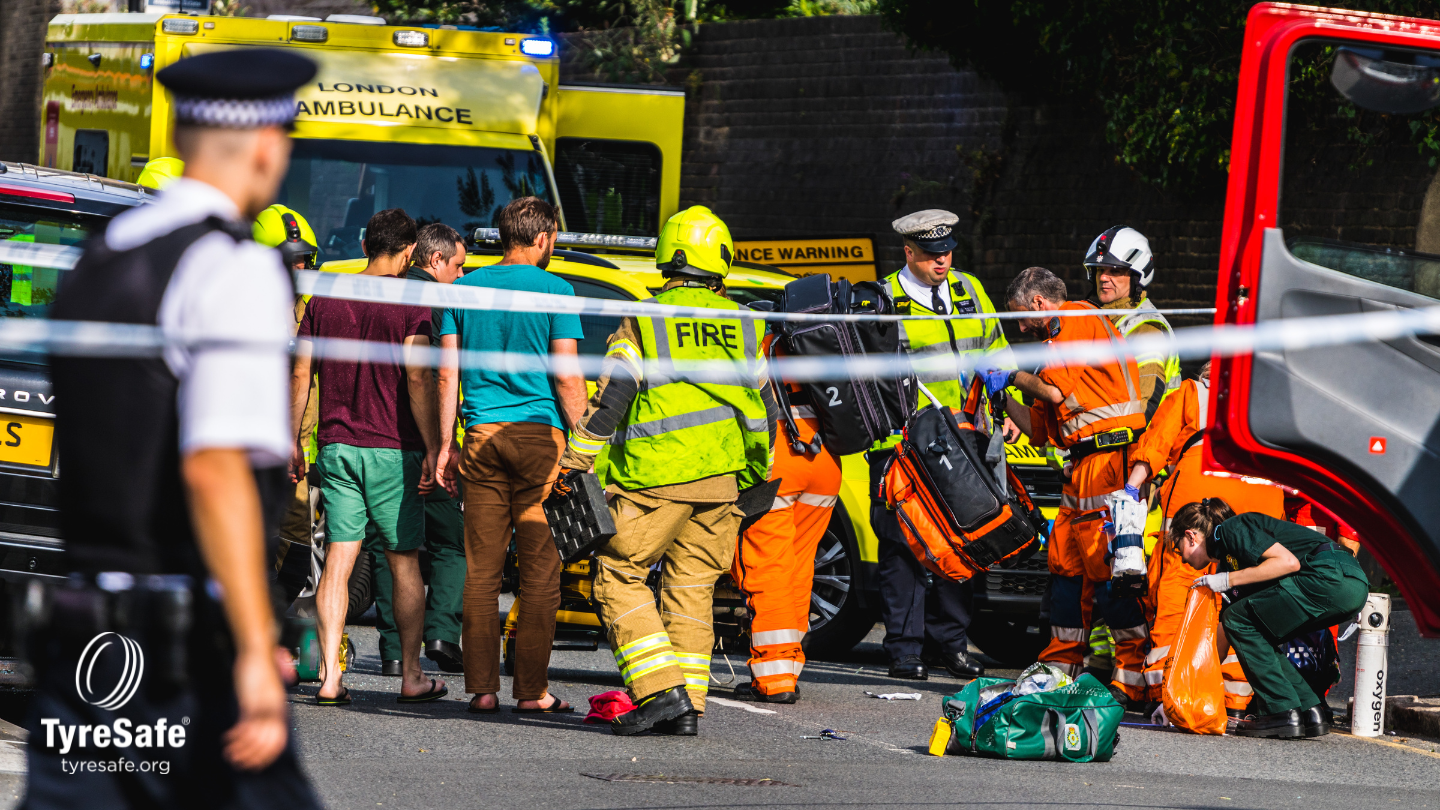TyreSafe, the UK’s leading tyre safety charity, today expressed profound concern following the recent Daily Mail article highlighting a disturbing stagnation in road fatality figures and a significant rise in motorcyclist deaths. The provisional Department for Transport (DfT) figures for 2024 show a 1% increase in overall road deaths, marking the first rise since 2017 (excluding pandemic-affected years), and a worrying 9% increase in motorcyclist fatalities.
While acknowledging the government’s upcoming road safety strategy and the consideration of mandating new safety technologies, TyreSafe warns that these crucial advancements could be severely undermined if fundamental tyre safety issues are not simultaneously addressed.
“We continue to see no significant reduction in the numbers of fatalities on our roads, and for over a decade, we have witnessed a stagnation in efforts to reduce the numbers of people being killed each year,” said Stuart Lovatt, TyreSafe Chair. “It has now been 15 years since we saw a significant drop in fatalities from the previous year. We look forward to seeing the government’s planned road safety strategy, but we urge the government and DfT to consider the critical case for action to address the numbers of vehicles on our roads with illegal and unsafe tyres.”
The Daily Mail article highlighted that the government is reportedly considering adopting EU rules to mandate a host of safety technology in all new cars sold in the UK, including Advanced Driver Assistance Systems (ADAS) such as Intelligent Speed Assist (ISA), Emergency Lane Keeping Systems (ELKS), and Autonomous Emergency Braking (AEB).
TyreSafe fully supports the integration of such life-saving technologies. However, the charity stresses that the effectiveness of these systems is critically dependent on the vehicle’s tyres being in optimal condition. While TyreSafe wholeheartedly supports the integration of such life-saving technologies, it is imperative to recognise their limitations.
Advanced Driver Assistance Systems are designed to augment driver safety, but their effectiveness is fundamentally reliant on a vehicle’s ability to respond to their commands. If a vehicle’s tyres are underinflated, worn, or otherwise unroadworthy, the best AEB system in the world cannot guarantee the necessary grip or stopping distance. This crucial dependency impacts the safety of all road users, particularly vulnerable ones like motorcyclists, who unfortunately saw a significant rise in fatalities last year. While motorcycles themselves may not benefit from the same breadth of ADAS features, their safety on the road is intrinsically linked to the optimal performance of every vehicle around them.
“The government is considering which new safety technology systems should be mandated on all new cars bought in the UK. However, TyreSafe warns that these very systems the government is relying on to improve safety will be severely compromised if the ability to avoid collisions is dramatically reduced as vehicles continue to have unroadworthy tyres that compromise performance and stopping ability,” Stuart added.
TyreSafe urges the government to support the call for increased safety technology by simultaneously requiring greater public awareness and education on tyre safety management. This includes regular checks for correct tyre pressure, tread depth, and overall tyre condition. Ensuring tyres are safe and roadworthy is a fundamental and often overlooked aspect of road safety that directly impacts a vehicle’s ability to brake effectively, maintain grip, and respond to emergency manoeuvres – all of which are crucial for ADAS systems to function as intended.



